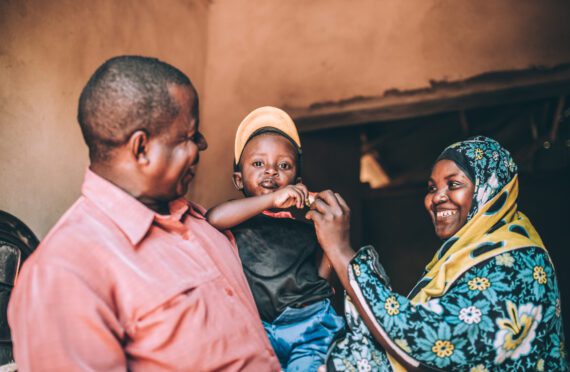House and Senate Committees this week approved bills that will help to strengthen investments and promote future agriculture development in Africa, helping to alleviate hunger there.
The House Ways and Means Committee and the Senate Finance Committee passed the Africa Growth and Opportunity Act (AGOA). This legislation aims to strengthen U.S.-Africa trade opportunities. While the existing authorization will expire on Sept. 30, 2015, legislation moving through Congress now would extend that authorization for another ten years.
“Reauthorization of AGOA could encourage job creation through trade for AGOA-eligible countries as well as the United States,” said Eric Mitchell, director of government relations at Bread for the World. “It is essential that our trade policies and agreements contribute to the efforts to reduce hunger and poverty.”
AGOA is the most important legislation that defines trade relationships between the United States and sub-Saharan Africa. Since it went into effect in 2000, exports under AGOA increased more than 500 percent, from $8.15 billion in 2001 to $53.8 billion in 2011. However, 95 percent of the total goods traded under AGOA was in the form of oil, gas, and minerals over that decade. AGOA reauthorization should focus on non-energy imports and include strengthening the capacity of smallholder farmers and businesses to create jobs and boost incomes.
An estimated 80 percent of the population in sub-Saharan Africa lives in rural areas and depends on agriculture for their livelihood. Female farmers often have fewer options in their livelihoods, including access to markets. The Senate version of AGOA includes a bipartisan amendment that will strengthen the trade capacity of smallholder women farmers. This language, which was introduced by Sens. Debbie Stabenow (D-Mich.) and Pat Roberts (R-Kan.), leading members of the Senate Agriculture Committee, was overwhelmingly supported by the Senate Finance Committee.
“Through this language, AGOA will have a direct impact on Africa’s women farmers, as well as improving overall food security,” said Mitchell.
Bread for the World, its partners, and its members have consistently advocated for AGOA since 1998



